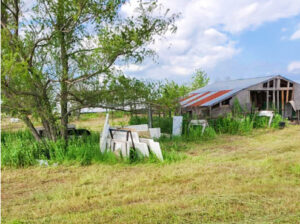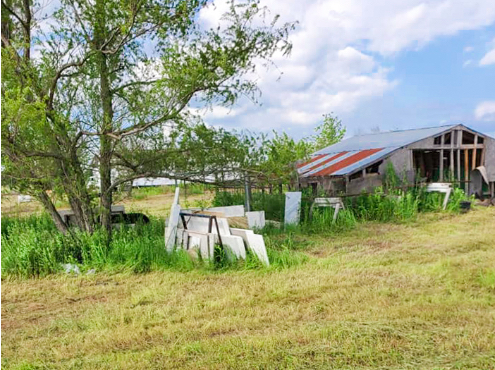Running a property cleanout business can be lucrative if you’re an estate liquidator, flipping foreclosures, or need help cleaning out a home that has been evicted. It also requires a lot of hard work. Vacated rental houses or apartments also Property Clean Out Louisville. Sometimes, previous tenants leave behind unwanted items or junk.
Recycling has been the focus of much public attention in recent years. Many people feel that it is a good way to protect the environment. They want to recycle as much as possible, and they encourage others to do the same. The practice is often viewed as a gateway to other forms of environmental activism, such as composting and installing solar panels.
Whether it is plastics, glass, paper or metals, recycling is a process that involves converting used materials into new products. The materials are gathered in designated containers and sent to a facility where they can be sorted, cleaned, and made into usable materials for a variety of purposes. The recycled materials reduce the amount of raw material needed to produce new items, which helps save natural resources and energy, while reducing pollution caused by mining, landfills, incinerators and waste disposal.
Recycling is the process of turning waste materials—whether they be plastics, glass, metals, or paper—into new products. After being collected in appropriate containers, the materials are transported to a facility where they can be cleaned, sorted, and transformed into materials that can be used for a range of tasks. Recycling helps conserve energy and natural resources by lowering the amount of raw materials required to create new products. It also lessens pollution from mining, landfills, incinerators, and waste disposal.
Recycle is the process of creating new products out of waste materials, such as paper, plastic, glass, and metal. The materials are transported to a facility where they can be cleaned, sorted, and made into materials that can be used for a variety of tasks after being gathered in the proper containers. Recycling reduces the quantity of raw materials needed to make new products, which helps conserve energy and natural resources. Additionally, it reduces pollution from waste disposal, incinerators, landfills, and mining.
The process is also a useful way to recover valuable or rare materials. For example, gold and lead from old electronics and automobiles are recovered and recycled into new products. During World War II, resource shortages prompted the widespread practice of recycling. Governments encouraged this practice to save the use of scarce supplies of vital materials and allow more resources to be devoted to war efforts.
Recycling is popular because it can make a person feel as if they are helping to avert a global environmental disaster. Many people believe that it is an essential step in our struggle against climate change and other environmental problems.
Unfortunately, though recycling has benefits, it is not a solution for all of our environmental problems. It is not environmentally beneficial if the process of recycling itself is wasteful and energy-intensive, as it can be. In addition, it is often not economically efficient if the government mandates actions that individuals do not wish to perform voluntarily.
Landfills and incinerators are environmentally risky because they can leak chemicals into the air, ground or water. They also require large amounts of space and energy to operate, and they deprive the earth of natural habitats. Moreover, they are often overflowing and can cause odors and health hazards for local residents. In contrast, a ton of recycled paper saves the equivalent of 322 gallons of gasoline.
Environmental risks arise from the potential for chemical leaks from landfills and incinerators into the air, ground, or water. They also take up a lot of energy and space to run, and they destroy natural habitats on Earth. In addition, they frequently overflow and pose a health risk to the local population due to odors. By comparison, 322 gallons of gasoline can be saved by using a ton of recycled paper.
If you are a property owner or a person who creates waste, it’s important to understand how dangerous materials are classified. The EPA and local governments have specific regulations that govern the handling, storage, and disposal of these toxic materials. This is because they can cause fires, explosions, and other problems that endanger the safety of workers and the general public.
It’s critical to comprehend how hazardous materials are categorized if you own property or produce waste. Specific rules governing the handling, storage, and disposal of these hazardous materials are enforced by the EPA and local governments. This is due to the fact that they have the potential to start fires, explode, and cause other issues that could jeopardize the public’s and employees’ safety.
Hazardous waste is any discarded material that has properties that make it harmful to human health or the environment. These substances can be generated as byproducts of commercial manufacturing processes or discarded household products like paint thinner, cleaning fluids, and batteries. They may be in the form of liquids, solids, contained gases, or sludges and can have four main characteristics: ignitability, corrosivity, reactivity, and toxicity.
Any material that is disposed of that poses a risk to the environment or public health is considered hazardous waste. These materials may come from abandoned household items like paint thinner, cleaning solutions, and batteries, or they may be produced as byproducts of commercial manufacturing processes. They can be classified as ignitable, corrosive, reactive, or noxious. They can also be in the form of liquids, solids, contained gases, or sludges.
While reducing the amount of hazardous waste produced is ideal, this cannot be achieved in all cases. Consequently, it is necessary to find alternative methods for disposing of this type of waste.
One option is to donate the waste to a company or organization that will use it for other purposes. For example, a Habitat for Humanity could use leftover paint, or an auto garage might be interested in your extra motor oil. Another option is to recycle the material. Many communities have recycling centers that can take a variety of hazardous materials. However, you should always check with your local government to find out if the facility you’re using is RCRA compliant.
Finally, you can also place the material in a hazardous waste container that is properly labeled and disposed of at a proper disposal site. Be sure to keep hazardous waste away from children and pets, as it can be harmful to them if ingested or inhaled.
Giving the garbage to a business or organization that will use it for other things is one way to get rid of it. For instance, you could give extra paint to Habitat for Humanity, or an auto shop might buy your extra motor oil. Recycling the material is an additional option. Recycling facilities that accept a range of hazardous materials can be found in many communities. To be sure, though, you should always inquire with your local government about whether the facility you’re using complies with RCRA.
If you’re unsure whether something is considered hazardous waste, you can consult an online database. There are several free, interactive tools available that will help you locate nearby disposal sites. The US EPA provides maps of the country that display locations of hazardous waste facilities, as well as information about the waste they produce. Another helpful tool is TOXMAP, a service of the National Library of Medicine that uses geographic information systems to provide medical and environmental data.
Use an online database to determine whether something is deemed hazardous waste if you’re not sure. There are a number of interactive, free tools that can assist you in finding disposal sites close by. The locations of hazardous waste facilities across the nation are shown on maps provided by the US EPA, along with details about the waste that these facilities generate. The National Library of Medicine’s TOXMAP service, which uses geographic information systems to provide medical and environmental data, is another useful resource.


